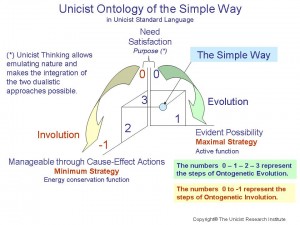Businesses are simple when businessmen/women have their business-model in their minds and their customers find the product or service they are seeking for.
 Easy businesses are similar to simple businesses but they have no differentiated attributes for the seller.
Easy businesses are similar to simple businesses but they have no differentiated attributes for the seller.
Simple businesses expand and easy businesses become marginal.
Simple businesses imply that they are evidently possible, manageable with cause-effect actions and necessary.
The first step is to apprehend their possibility and then see if they are manageable. While management can be learned, apprehending the actual possibility is a precondition for learning.
But what is simple for someone is not simple for another one. Something is simple when it can be intuitively approached. It has to be considered that intuition includes the necessary knowledge to make something simple.
The Accountable Care Organization (ACO) business is simple but this simplicity needs to be materialized in a simple organization to become successful.
The unified field of the business, defined by its concept, needs to be known to make the business manageable to become simple. “Luck” is also a precondition. As a football player said: “The more I train, the luckier I get”.
Simplicity is the starting point and designing simple businesses is the goal. Unicist reflection, which is based on action, is the pathway from simplicity to simple ways of action.
